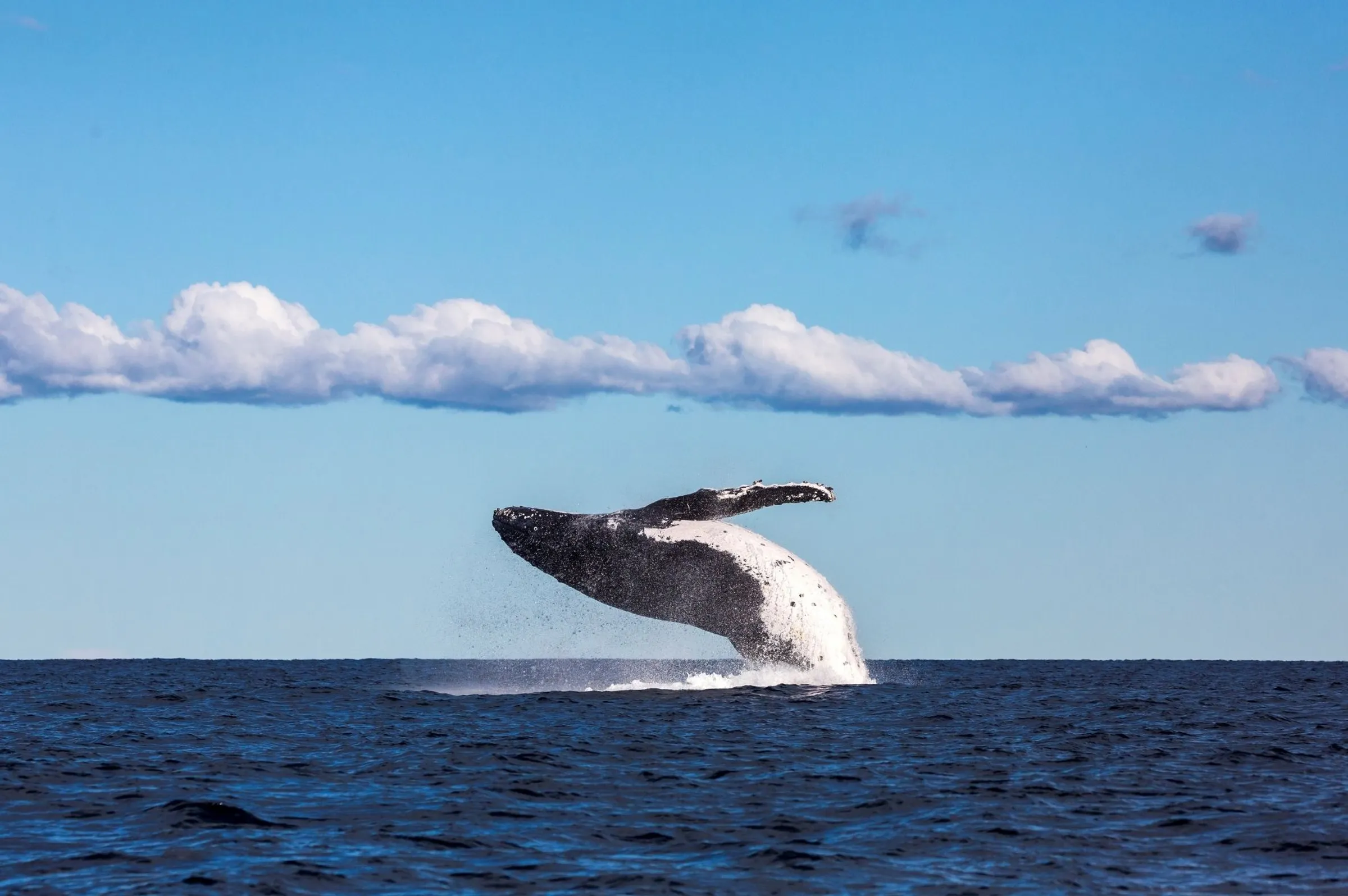
Of course we’re talking whales. And specifically, whale watching along the NSW coast.
Between May and November each year, tens of thousands of these gentle giants swim north to breed in warmer waters. They then make the return trip with their youngsters in tow.
With locations right along the NSW coastline, Reflections Holiday Parks are perfect for whale watching. You can hike to a nearby headland, enjoy a whale-watching cruise, or simply peer through the binoculars from your cabin balcony
Here’s what you need to know about whale watching in NSW.
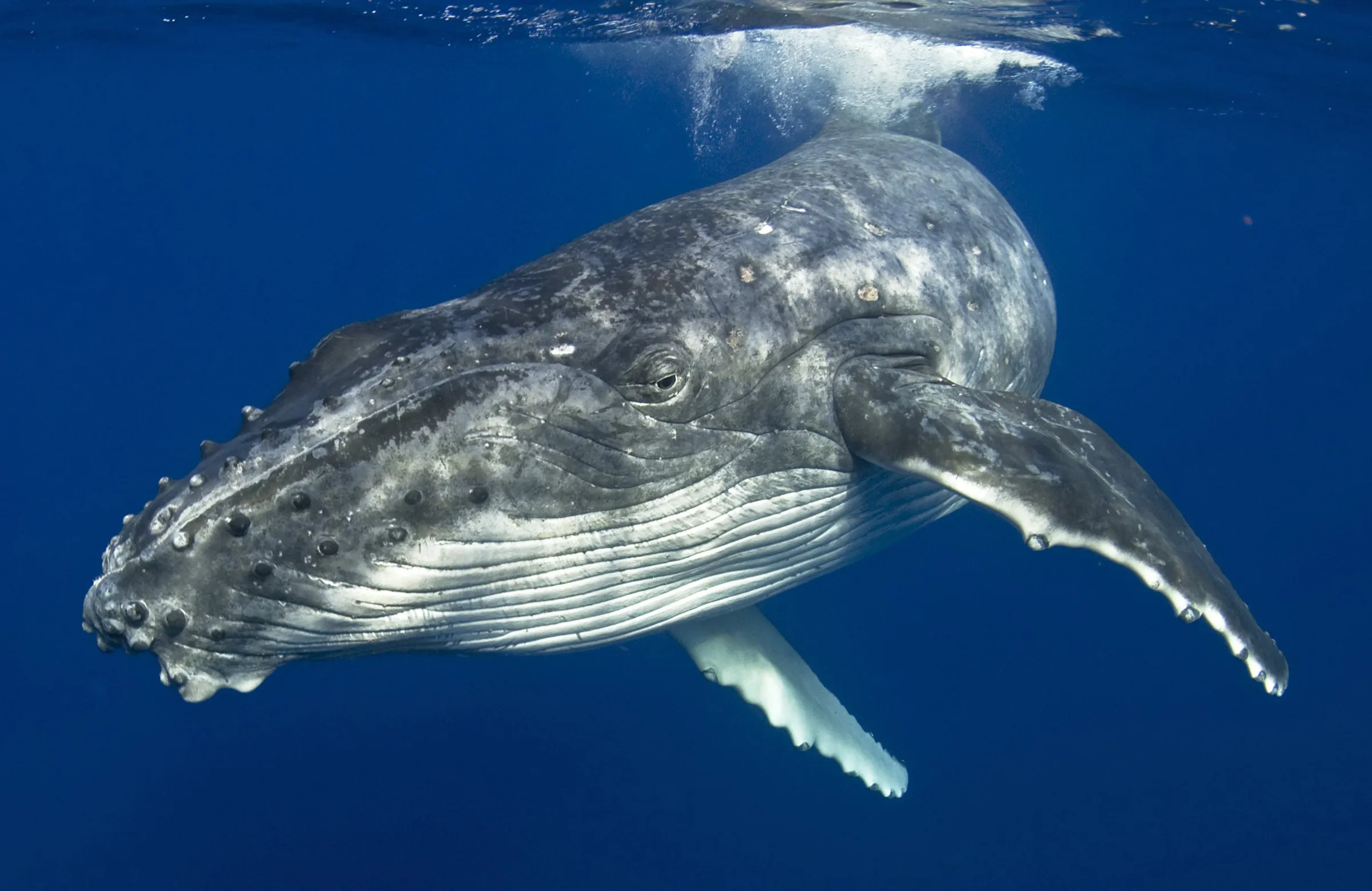
Where to go
NSW is a mecca for whale watching. And whilst you might spot the annual migration from any of our coastal parks, some areas are renowned whale-watching hotspots.
NSW Far North Coast
Byron Bay offers some of the best whale watching around. Stay at Byron Bay Holiday Park and look for whales from the sand, then visit the Cape Byron Lighthouse for its far-reaching ocean views. You can also go on a whale-watching cruise, or enjoy a sea kayak tour for an unforgettable encounter.
NSW Coffs Coast
With its unspoiled beaches and lush vegetation, the Coffs Coast is an idyllic spot for a whale-watching adventure. Moonee Beach Holiday Park and the nearby ‘Look at Me Now’ headland walk are standout whale-watching spots. You can also stretch out your sea legs with a whale-watching tour from Coffs Harbour.
NSW Mid Coast
With ocean lookouts far and wide, whale watching is a popular pastime along the NSW Mid Coast. Bonny Hills Holiday Park in Greater Port Macquarie is perched atop a headland with whale-friendly views. Or stay at Jimmys Beach Holiday Park near Port Stephens and climb nearby Mount Yacaaba to see what you can see.
Eden was once named by Australian Geographic as Australia’s number one whale watching destination. Stay at our Eden Holiday Park and ride the open waters on a whale-watching cruise, visit the Eden Killer Whale Museum, or enjoy all the fun of the Eden Whale Festival held each November.
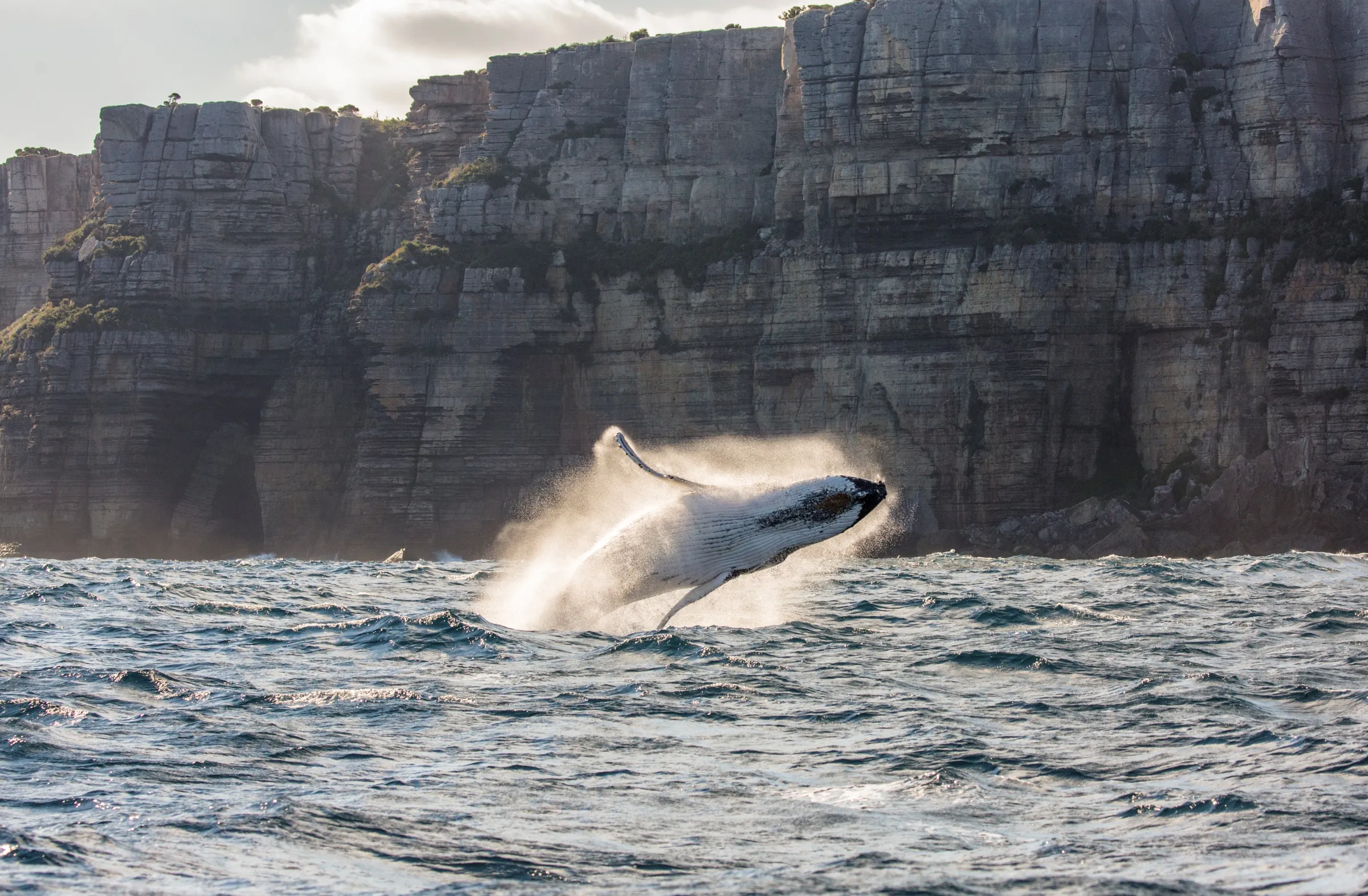
When to go
Whilst the whale watching season is from May to November, it’s the areas above Sydney that get most of the action between May and July. From September to November they stick along the coastline, with the NSW South Coast enjoying plenty of sightings towards the season’s end.
What to take
Thankfully, whale watching doesn’t need any special equipment. Binoculars are always a good idea, along with a camera (with a telephoto lens) if you want to capture the action. Be sure to rug up warm, and if you’re doing land-based whale watching, bring something comfy to sit on.
The NSW National Parks and Wildlife Service (NPWS) even has a whale watching app, so be sure to download the Wild About Whales app before you head out. It provides details of the latest sightings along the NSW coastline, and if you spot one yourself, you can add your own sighting.
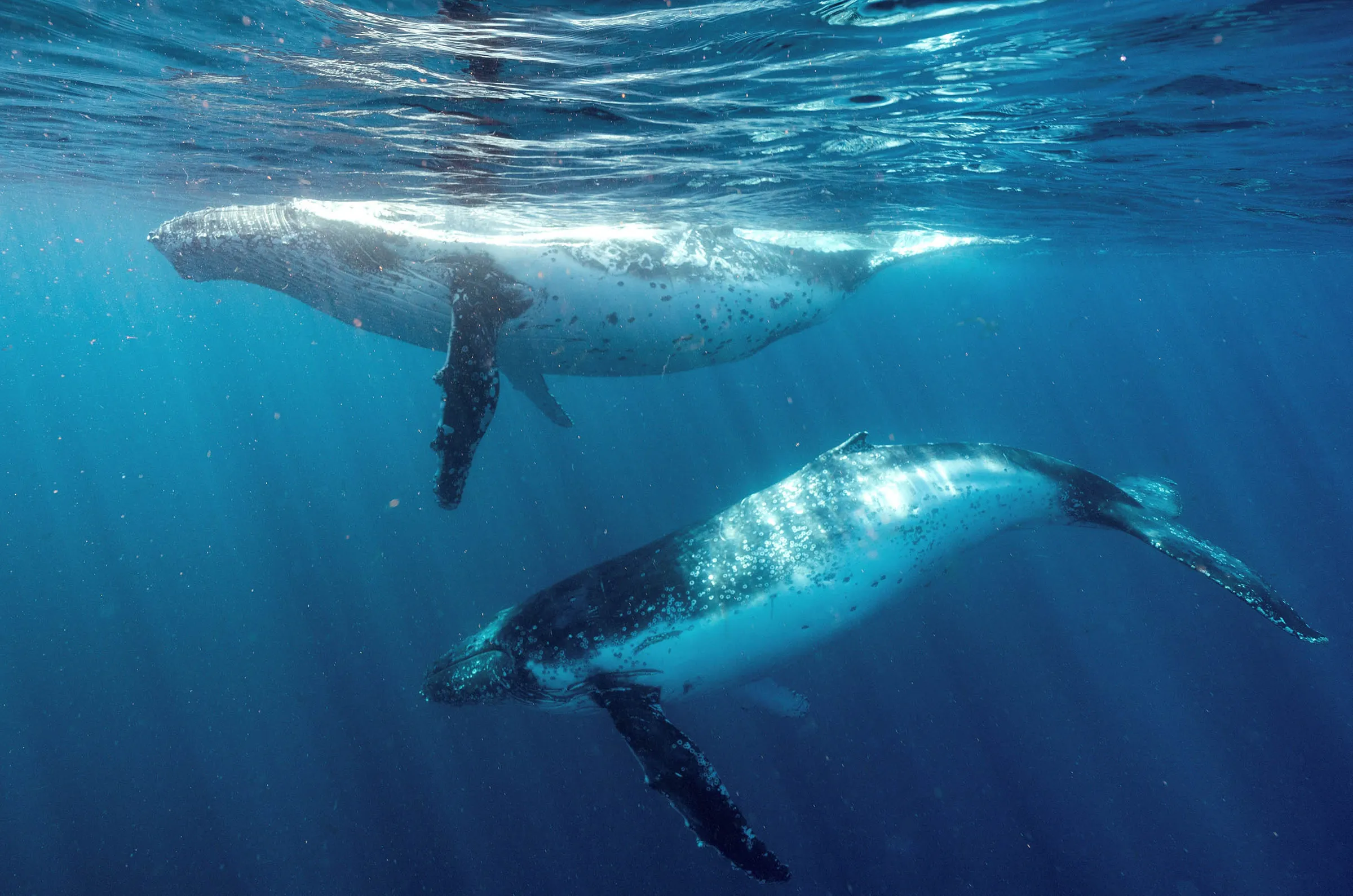
What to look for
We know … you’re looking for whales! But there are signs a whale might be lurking below the surface. This includes the ‘blow’ – the water sprayed into the air as the whale exhales. It’s easier to spot a blow on a clear day, but avoid the sun’s glare by going out late morning or early afternoon.
And if they’re breaching, tail slapping or spy hopping (i.e. when they lift their head vertically out of the water), then any time of day is going to be just fine!
Ready for your whale watching adventure?
Reflections Holiday Parks along the NSW coastline are the perfect base for whale watching in NSW. Find a park and get ready for an experience of a lifetime.
All images supplied by Destination NSW.
Related articles
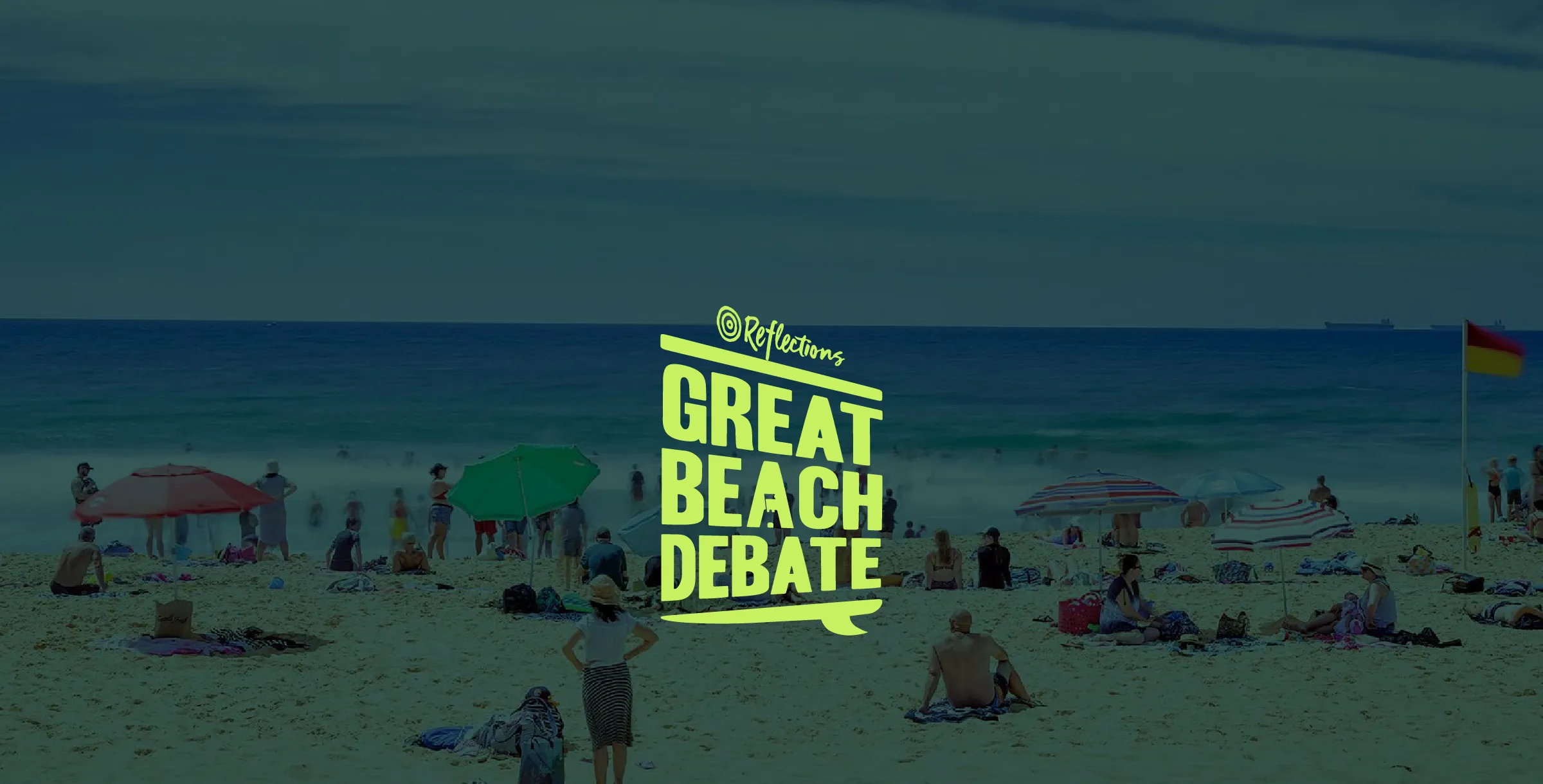
From the hotly debated to the hilariously trivial, beach lovers from all over Australia are having...
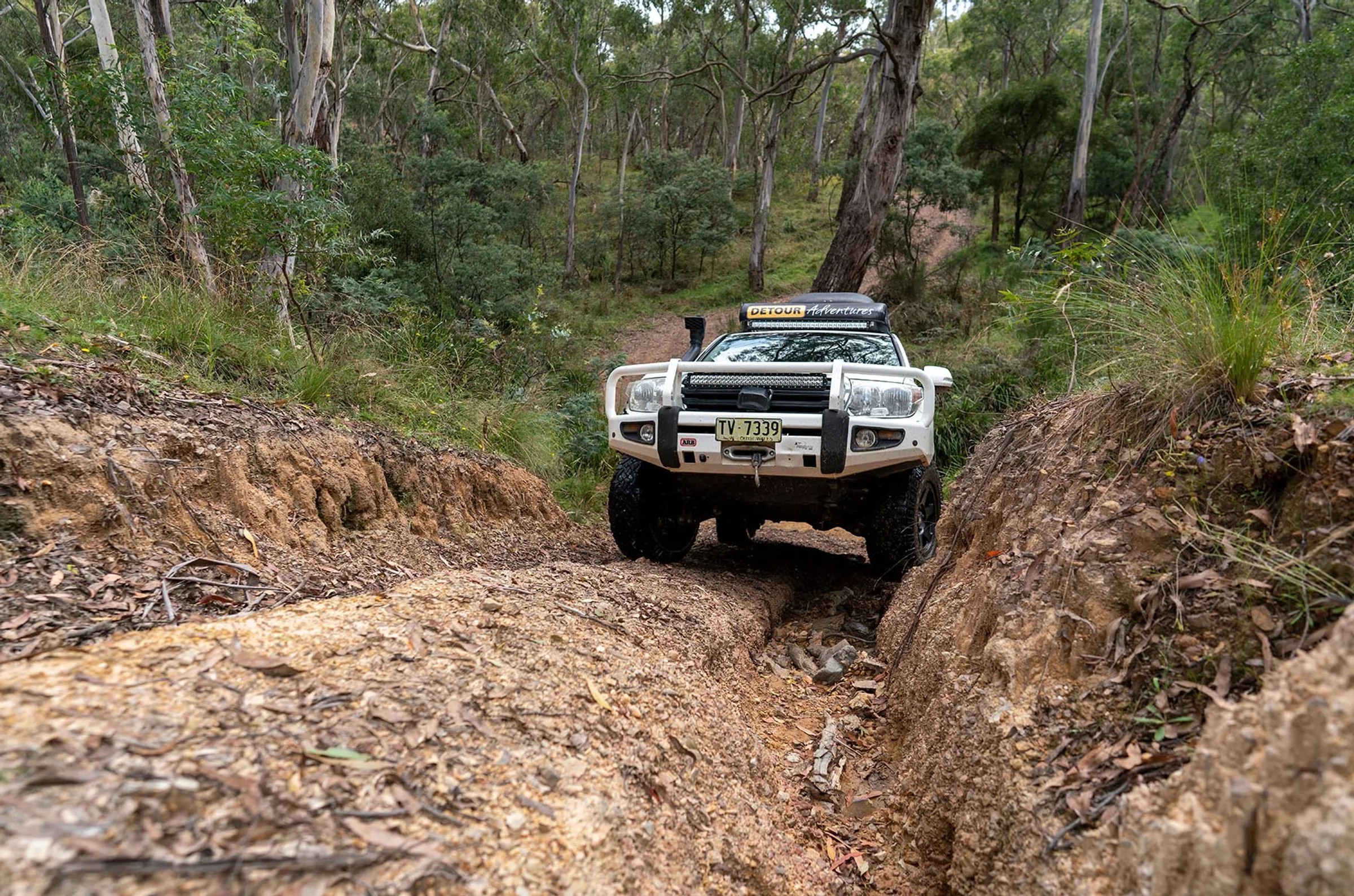
New South Wales is packed with incredible 4WD tracks, from forested mountain trails to remote outback...
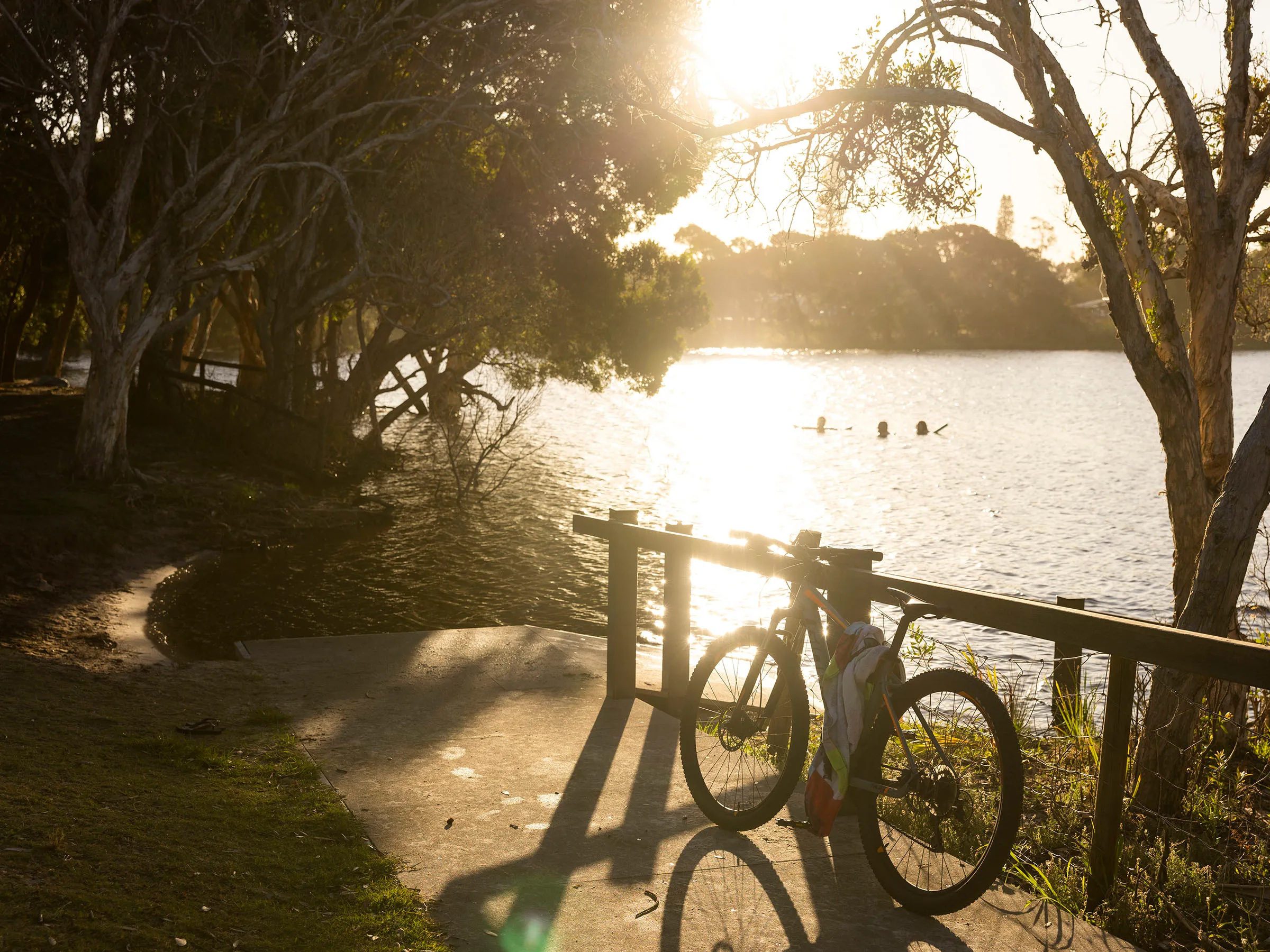
This guide breaks down some of the best cycling tracks and trails across six NSW regions, with details...
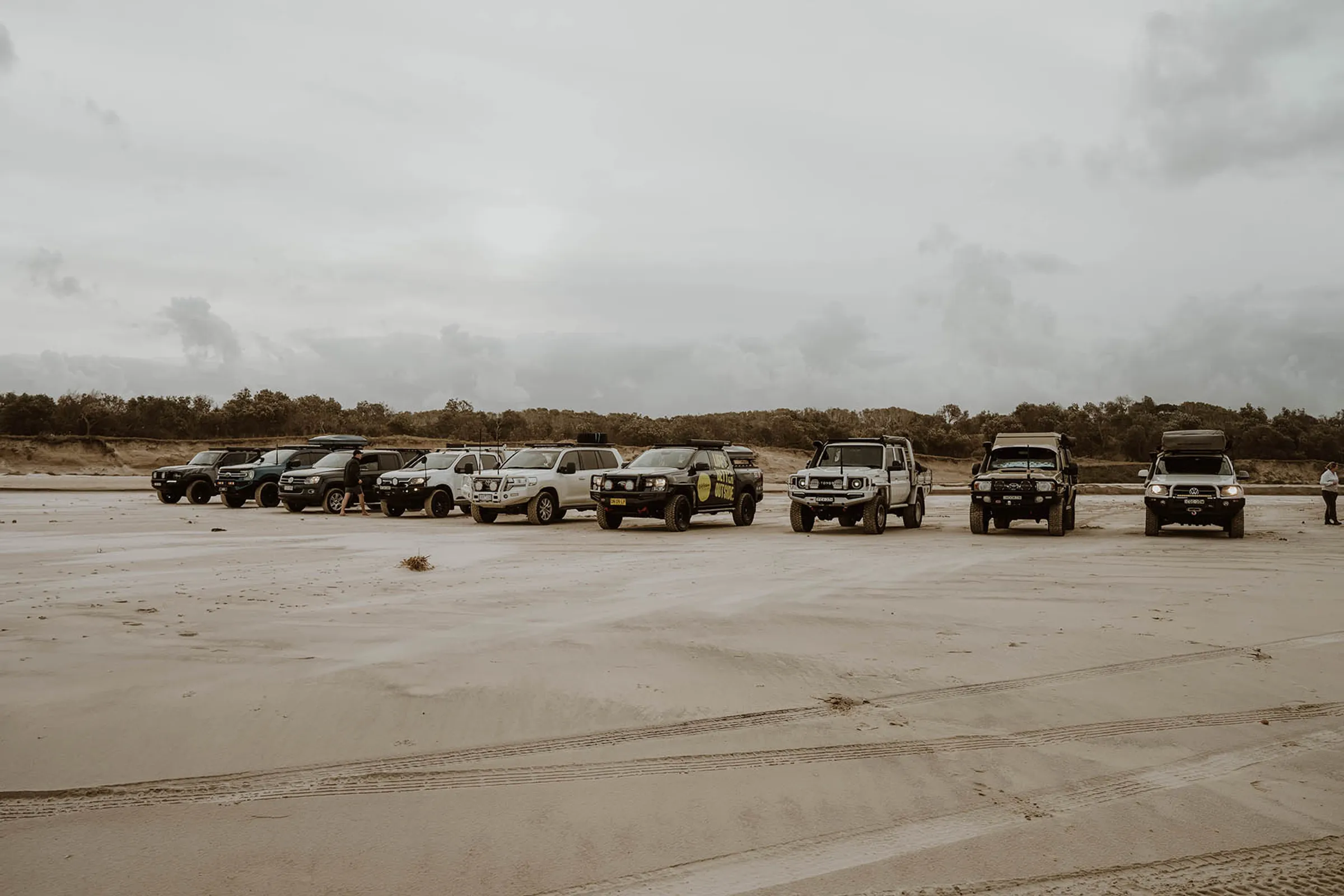
If you’re craving wide open spaces, sandy beach runs, rainforest tracks and rugged inland terrain on...
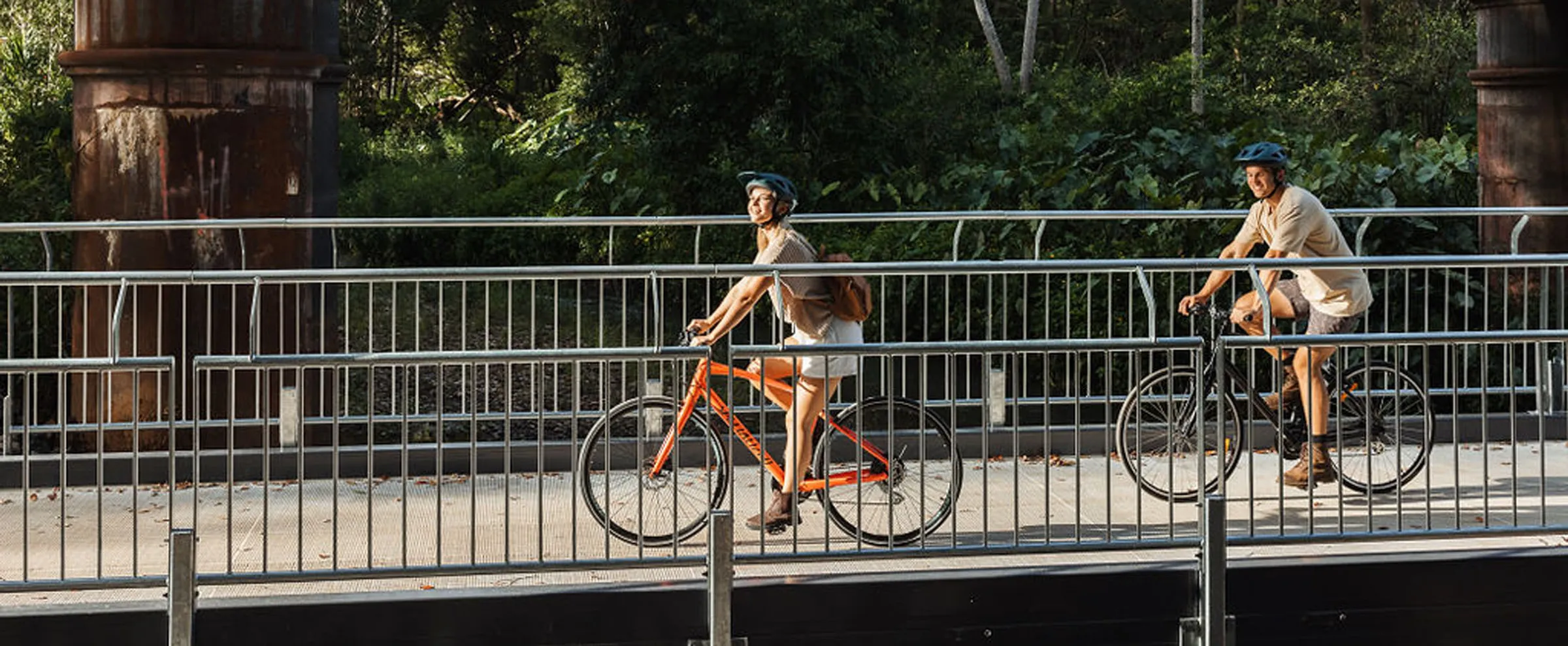
Park the van, dust off the bike and get ready to feel the breeze on your face. If you love discovering...

There are so many amazing 4WD experiences to be had in regional New South Wales. Whether you are looking...